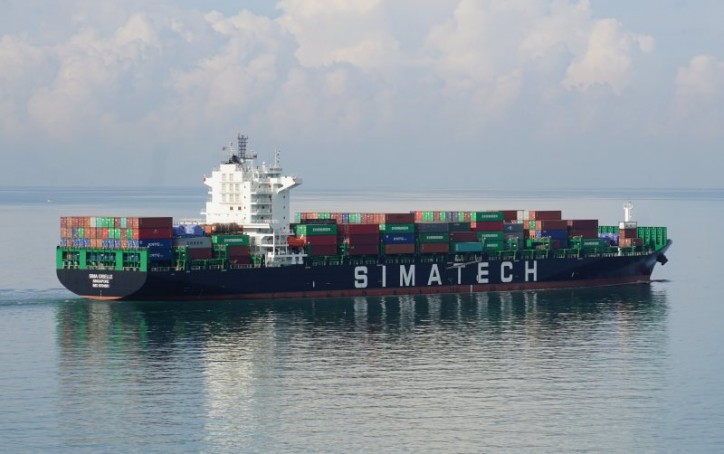After listening to M.G. Maghami, chairman of Dubai-based feeder container ship operator Simatech Shipping LLC, one can only wonder why more global fleet owners aren’t registering their container fleet in India.
Maghami is a pioneer in the container shipping industry, and doesn’t hesitate to say it.
“We are the pioneers,” he said during a visit to Mumbai last week. “Three years ago, we started going to Mogadishu port, which was the centre of piracy. We were the first company to open container shipping services to Mogadishu… We opened the route, we went to the port, cleaned up the port. We put up cargo handling systems… everything; now, you can see all the shipping lines going there.
“We had several discussions with the United Nations anti-piracy force. I told them if there is business activity, people go. Luckily, Somalia is doing very well. After we started, volumes are growing, people have started getting hope, truck drivers are coming to the port, taking cargo and going to neighbouring destinations such as Kenya and Ethiopia. So, trade and business activities create society’s stability… it happened in Somalia”.
“We were the first container shipping company to start services to Iraq almost 18 years ago. We are the first non-Indian shipping company to come to India and run container shipping services linking local routes with two Indian-registered ships. We are planning to register two more ships under the Indian flag.”

Simatech container ship SIMA GISELLE - Image: Geir Vinnes / Shipspotting
Maghami, an Iranian national, is also excited over the decision of western nations to lift sanctions on Iran and the business opportunities it opens up. Simatech, he said, plans to start a direct shipping service between India and Iran.
What made him pick India as a destination for registering two of his ships under the Indian flag and run services connecting local ports when other global fleet owners have shied away?
“The most important thing that persuaded us to come to India is the government. The government believes in competitive industries, and this helps us a lot.
“What also made us look at India seriously is its open market policies, which allow everybody to come and operate. The second thing is the opportunities here,” he added.
India allows 100% foreign direct investment (FDI) in shipping. So, global fleet owners can come and set up shop in India on their own without the requirement of a local partner to do business in the country.
There are some 18 Indian-registered container ships to cater to a market size of about 600,000 twenty-foot equivalent units (TEUs) that are transported for local use (not export-import) a year. This market is expected to grow as India takes steps to facilitate the shifting of containers now hauled by road and rail to sea.
Only Indian-registered ships are allowed to carry cargo on local routes, according to the so-called cabotage law. Simatech is trying to tap this opportunity.
From October last year, Indian-registered ships carrying export-import containers, empty containers and containers stuffed with cargo meant for local consumption plying on local routes have been exempted from paying customs and excise duty on bunker (ship fuel).
This is a big incentive for Indian ships because bunker accounts for about 40% of the operating cost of a ship.
Also, since 2004, Indian-registered ships have been subjected to tonnage tax—a levy based on the cargo-carrying capacity of a ship—in place of a corporate tax, cutting the tax outgo of a shipping company to 1-2% of its income. About 95% of the global shipping fleet operates under the tonnage tax regime.
More than the tax aspects, Maghami says that it was his “willingness” as a shipowner that prompted him to register the two ships under the Indian flag.
“Those ships we brought here, we bought them for cash and brought them here. Banks are not very clear towards the Indian flag. Indian flag must be known to the financiers,” he said.
“The financiers prefer more flag of convenience, (a term used to describe ships registered in tax havens such as Panama, Malta and Cyprus). Because of the reputation in India especially, wherever the tax application is there, it’s a bit cloudy for financiers,” he added.
Transporting cargo on local routes using ships will bring down the cost of domestic shipments and cut the overall logistics costs for local industries.
It also helps India to reduce carbon dioxide (CO2) emissions because ships emit lesser CO2 than trucks, he added.
Apart from the state-run Shipping Corp. of India Ltd (SCI) and Shreyas Shipping and Logistics Ltd, which runs Indian-registered container ships, India lacks container ship operators who can bring about a paradigm shift in the way cargo is shipped on local routes.
The arrival of Simatech with two Indian-registered ships could be a potential game changer from that perspective.
Source: Livemint